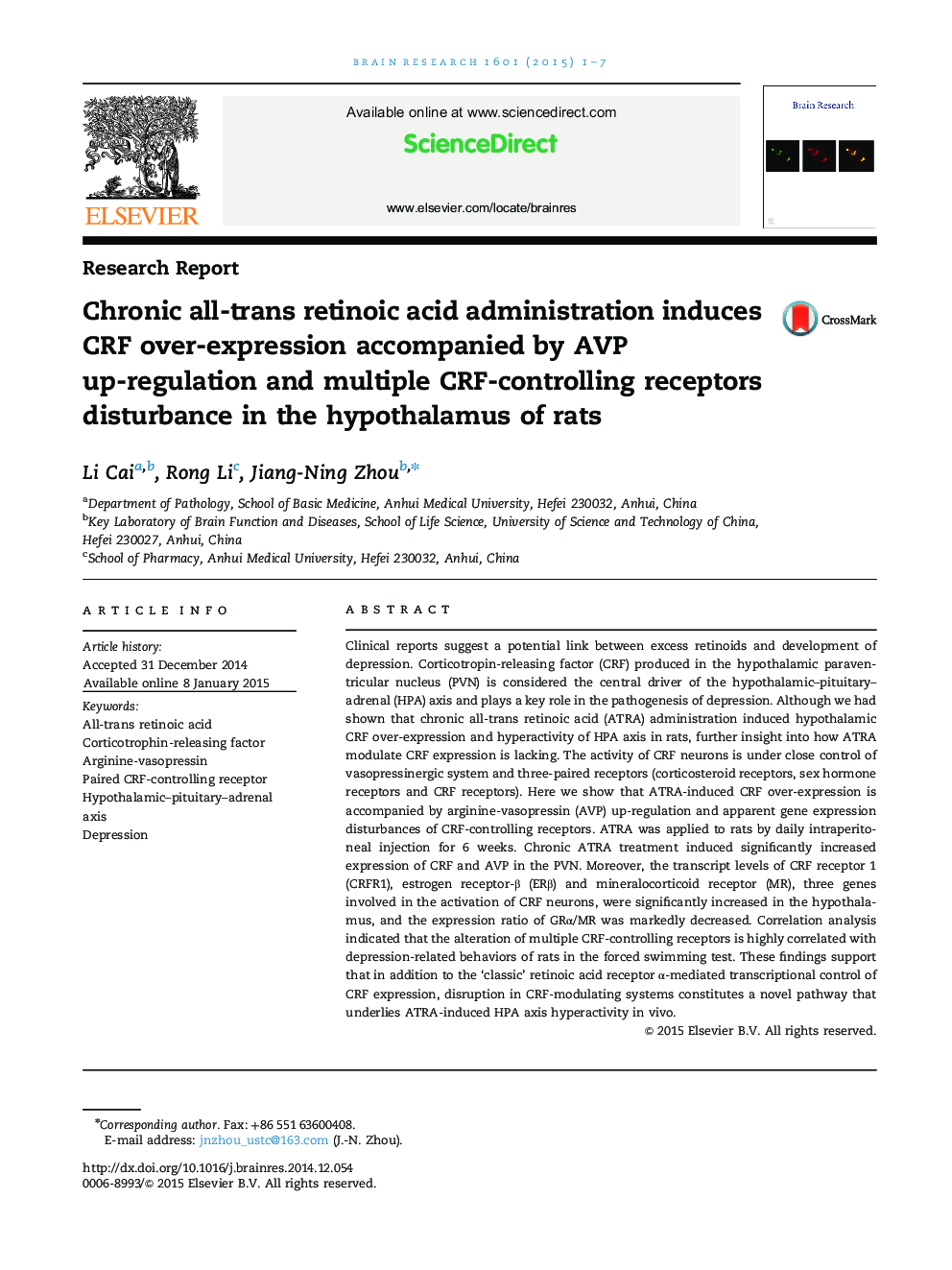| کد مقاله | کد نشریه | سال انتشار | مقاله انگلیسی | نسخه تمام متن |
|---|---|---|---|---|
| 6263158 | 1613838 | 2015 | 7 صفحه PDF | دانلود رایگان |

- Chronic ATRA treatment induced CRF and AVP over-expression in hypothalamic PVN.
- Gene expression disturbance of three paired CRF-controlling receptors was found.
- CRF-controlling receptors disturbance correlates with depression-related behaviors.
Clinical reports suggest a potential link between excess retinoids and development of depression. Corticotropin-releasing factor (CRF) produced in the hypothalamic paraventricular nucleus (PVN) is considered the central driver of the hypothalamic-pituitary-adrenal (HPA) axis and plays a key role in the pathogenesis of depression. Although we had shown that chronic all-trans retinoic acid (ATRA) administration induced hypothalamic CRF over-expression and hyperactivity of HPA axis in rats, further insight into how ATRA modulate CRF expression is lacking. The activity of CRF neurons is under close control of vasopressinergic system and three-paired receptors (corticosteroid receptors, sex hormone receptors and CRF receptors). Here we show that ATRA-induced CRF over-expression is accompanied by arginine-vasopressin (AVP) up-regulation and apparent gene expression disturbances of CRF-controlling receptors. ATRA was applied to rats by daily intraperitoneal injection for 6 weeks. Chronic ATRA treatment induced significantly increased expression of CRF and AVP in the PVN. Moreover, the transcript levels of CRF receptor 1 (CRFR1), estrogen receptor-β (ERβ) and mineralocorticoid receptor (MR), three genes involved in the activation of CRF neurons, were significantly increased in the hypothalamus, and the expression ratio of GRα/MR was markedly decreased. Correlation analysis indicated that the alteration of multiple CRF-controlling receptors is highly correlated with depression-related behaviors of rats in the forced swimming test. These findings support that in addition to the 'classic' retinoic acid receptor α-mediated transcriptional control of CRF expression, disruption in CRF-modulating systems constitutes a novel pathway that underlies ATRA-induced HPA axis hyperactivity in vivo.
Journal: Brain Research - Volume 1601, 19 March 2015, Pages 1-7